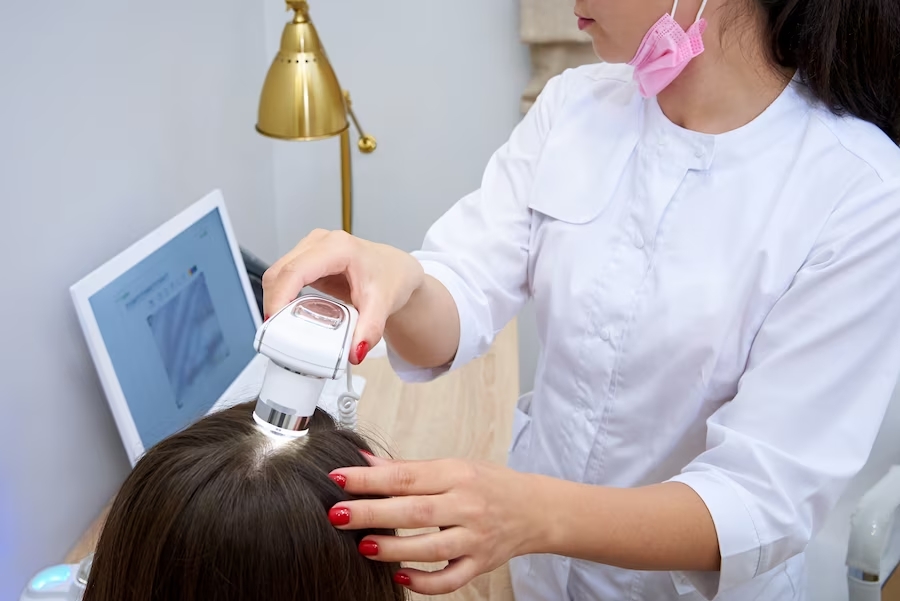
Laser hair regrowth treatment, also known as low-level laser therapy (LLLT), has gained recognition as a potential solution for individuals experiencing hair loss or thinning. While the effectiveness of this treatment has been established, it is essential to identify the characteristics of an ideal candidate to ensure the best possible outcomes. In this article, we will explore the qualities that make someone a good candidate for laser hair regrowth treatment, helping individuals determine if this option is suitable for their hair care needs.
Androgenetic Alopecia:
Androgenetic alopecia, commonly referred to as male or female pattern baldness, is the most suitable type of hair loss for laser regrowth treatment. This condition is characterized by a gradual thinning of hair in specific areas, such as the crown or hairline. Laser therapy has shown significant potential in stimulating hair follicles affected by androgenetic alopecia and promoting regrowth.
Early Stages of Hair Loss:
The ideal candidate for laser hair regrowth treatment is someone in the early stages of hair loss. It is crucial to address hair thinning as soon as possible since early intervention can yield better results. Laser therapy is most effective when used to maintain existing hair and prevent further hair loss rather than restoring hair that has been completely lost.
Healthy Scalp and Follicles:
A healthy scalp and hair follicles are essential for successful laser regrowth treatment. Individuals with conditions such as scalp infections, psoriasis, or severe dermatitis may not be suitable candidates. It is crucial to address any underlying scalp conditions before considering laser therapy to ensure optimal results.
Realistic Expectations:
Candidates for laser hair regrowth treatment should have realistic expectations about the outcomes. While laser therapy has shown positive results in many cases, it may not lead to a complete restoration of a full head of hair. Understanding that the treatment can improve hair density, enhance existing hair, and slow down hair loss is vital for maintaining realistic expectations.
Commitment to Consistency:
Laser hair regrowth treatment requires consistency and commitment to achieve optimal results. Typically, a series of treatment sessions over several months is recommended. Candidates must be willing to adhere to the treatment schedule and follow any additional instructions provided by their healthcare professional or trichologist.
Complementary Hair Care Practices:
Laser therapy is most effective when combined with a holistic approach to hair care. Candidates who are willing to adopt a comprehensive hair care routine, including a healthy diet, proper scalp hygiene, and the use of recommended hair products, may experience enhanced benefits from laser regrowth treatment.
Conclusion:
The ideal candidate for laser hair regrowth treatment is someone experiencing early stages of androgenetic alopecia, possessing a healthy scalp and hair follicles, maintaining realistic expectations, and committed to consistent treatment sessions. By identifying these qualities, individuals can determine whether laser therapy aligns with their specific hair care needs. Consulting with a healthcare professional or trichologist is crucial for a comprehensive evaluation and personalized recommendation. Laser hair regrowth treatment, when employed in the appropriate candidate, can be a valuable tool in addressing hair loss and promoting healthier, fuller hair.

